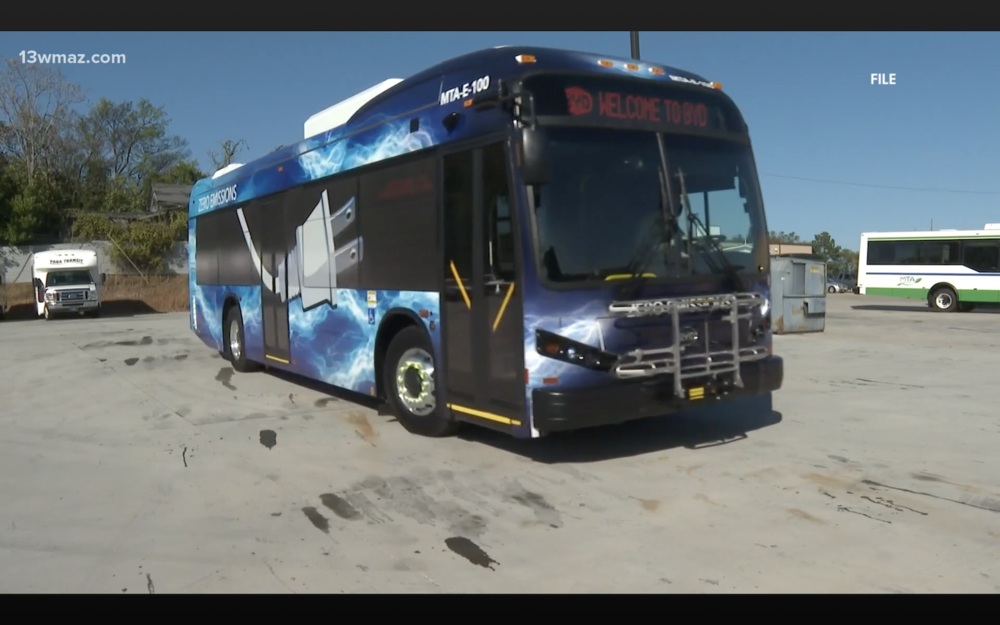
Section Branding
Header Content
Macon Transit Authority hopes to continue excellent results in electric bus fleet expansion
Primary Content

MACON, Ga. — In 2017, Macon Transit Authority was notified of a $50 million grant by the Federal Transportation Administration (FTA) to introduce electric buses. MTA officials applied for their share to see if they would get in.
Three years later, FTA awarded the transit authority $1.75 million to get two. By October 2020, two electric buses hit the roads and were introduced to riders in Macon.
Today, there are three para-transit buses and three more on the way, with at least 4 electric buses that move across the MTA routes. MTA CEO Craig Ross told 13WMAZ each electric bus costs around $900,000. BYD Auto Co. is the manufacturer from who MTA buys its e-buses from.
So how does paying for the buses work? MTA pays 10% of the total, while FTA and the Georgia Department of Transportation pay the other 90%. Grant money helps pay for the e-buses. Ross says they pay to add more charging stations as they get more buses.
"We bought a little over half an acre behind us. That is going to be for total electrification, all of that will be for charging stations. We have four charging stations now, we have room for six more at our lower part of the property," Ross said.
There hasn't been a fare increase to ride the bus in 15 years, Ross told 13WMAZ. He says with help from Macon-Bibb County Mayor Lester Miller, they were given $375,000 in American Rescue Plan funding so they wouldn't have to raise the $1.25 fare price.
Chester Howard Jr. has been driving for MTA for two and half years. He says driving the e-bus is comfortable.
"That's the most important thing. You don't have to hear all that noise, just quiet," Howard Jr. said.
It costs $1,000 a month for each e-bus to charge. Compared to the $50,000 a month stage spent on diesel fuel for their gas-dependent buses. The cost for a diesel bus is around $420,000 - $450,000. Ross says with each new e-bus introduced, they will retire a regular bus. However, Ross says the e-bus has one issue.
"It's parts. Parts have just skyrocketed. Plus, we don't know when we're going to get them," Ross said.
The longer it takes to get the parts, the longer it takes for the e-bus to be fixed. Ross says supply chain issues are the problem.
MTA is expected to have more charging stations for the places. Ross hopes to have a full fleet of electric buses by 2030.
This story comes to GPB through a reporting partnership with WMAZ.

